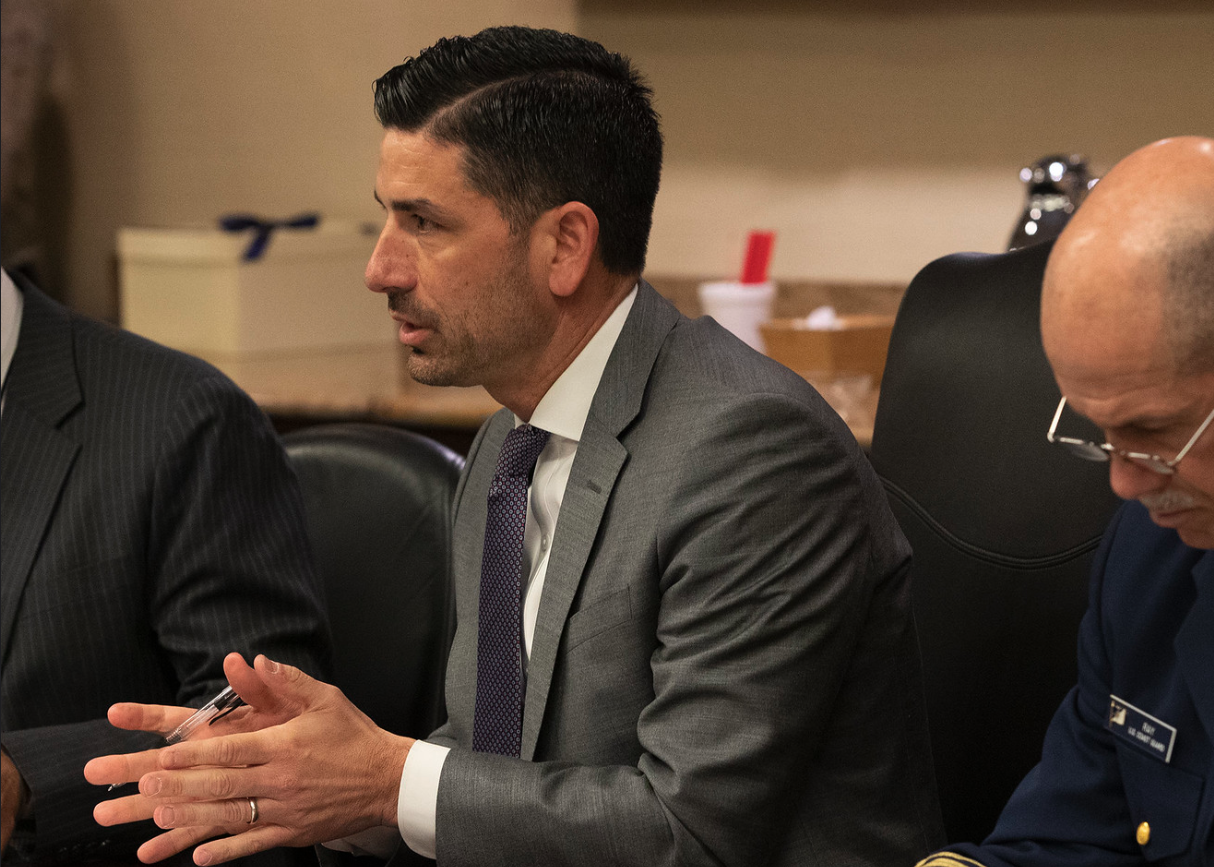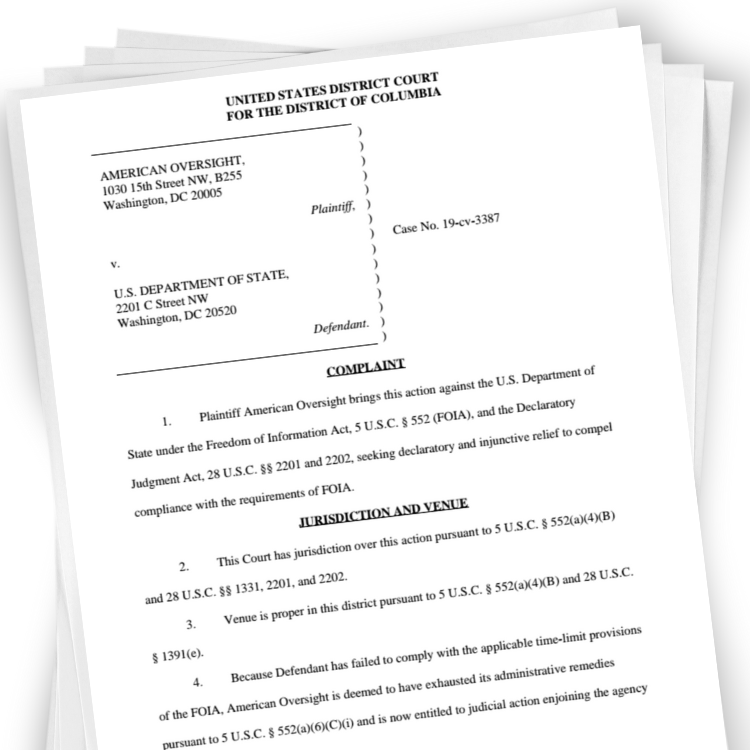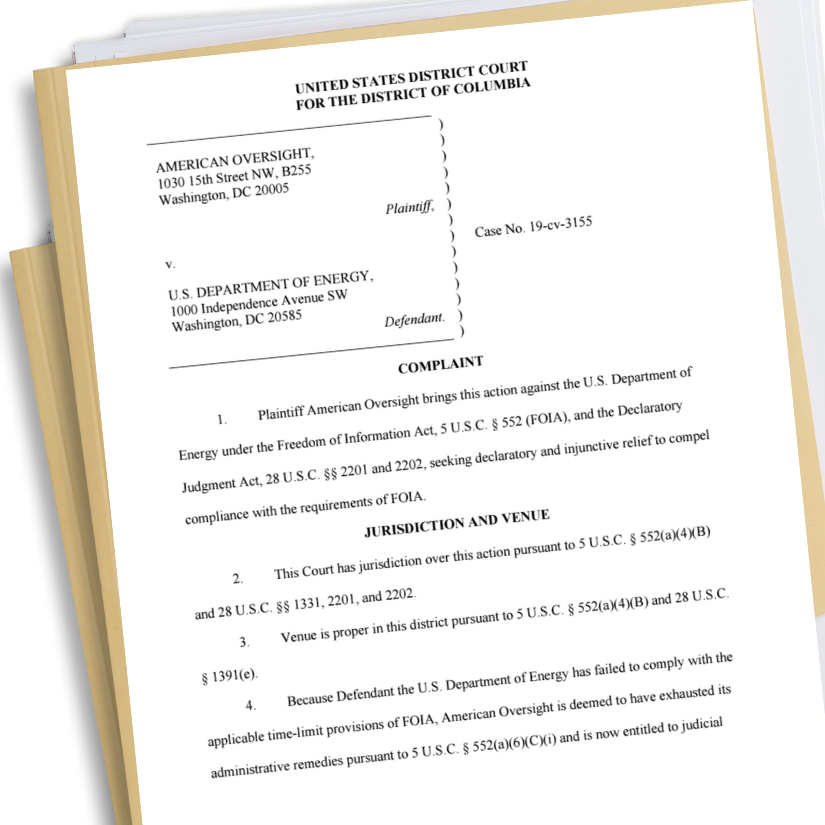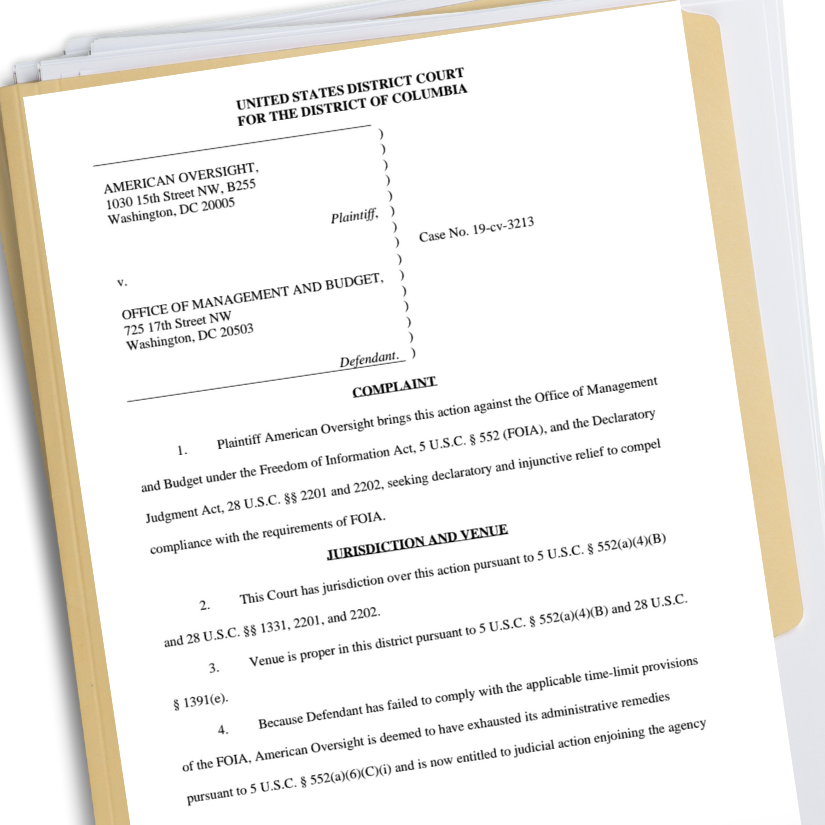
News Roundup: Ukraine-Related Documents, Hurdles for Asylum-Seekers, and Chad Wolf’s Involvement in Family Separation
The latest on impeachment and on our investigations into the administration's immigration policies.

We’re exactly two weeks away from the deadline for the State Department to release multiple categories of Ukraine-related records in response to American Oversight’s lawsuit. Meanwhile, the House’s impeachment inquiry is gearing up for its public phase.
This week, impeachment investigators released a number of transcripts from the closed-door testimony of witnesses from the past month. The first two transcripts released, those of former Ambassador to Ukraine Marie Yovanovitch and former State Department Senior Adviser Michael McKinley, detailed the timeline of Yovanovitch’s recall from Kyiv and delved into the State Department’s failure to protect career employees from political retaliation.
We pored through those two transcripts to find clues about existing documents or communications that would be included in our more than 50 Freedom of Information Act requests, or in our current lawsuit against the State Department for Ukraine-related records. See what we found here.
Other released transcripts included those of the testimony of George Kent, the deputy assistant secretary of state for Ukraine; George Sondland, the U.S. ambassador to the EU; Kurt Volker, the former U.S. special envoy to Ukraine (a position the administration has now said it plans to scrap); and NSC officials Fiona Hill and Alexander Vindman. Sondland’s testimony was particularly damaging, especially the revision in which he admitted he told Ukrainian officials that U.S. military aid was contingent on a public announcement of an investigation that could benefit Trump politically. (In other words, quid pro quo; in yet another word, bribery.)
Of course, our lawsuit against the State Department isn’t the only FOIA litigation in our investigation of the Trump administration’s contacts with Ukraine — we’re also suing the Department of Energy, the Office of Management and Budget, and now, the Defense Department for records related to the withholding of aid to Ukraine and the effort to pressure the Ukrainian government to open an investigation. On Friday, we filed another lawsuit against the State Department for Sondland’s communications. And, of course, this isn’t the only investigation we’re working on — read more:
Chad Wolf: Trump’s pick for acting secretary of homeland security, Chad Wolf, said this summer while testifying before the Senate that he had not helped develop the Trump administration’s family-separation policy. But calendars we obtained would suggest otherwise. In fact, they show several meetings on the topic, and NBC News reported on an email in which Wolf included family separation as a policy recommendation in 2017. The group Restore Public Trust, citing the calendars we obtained, called on the Senate Homeland Security and Government Affairs Committee to refer Wolf to the Justice Department for investigation over alleged false claims.
The Florida Connection: Politico reported last month that indicted Giuliani associate Lev Parnas — whose lawyer this week said that he agreed to cooperate with impeachment investigators — had attended a number of campaign events with Florida Gov. Ron DeSantis prior to the 2018 election. Earlier this week, DeSantis’s office said he had likely met Parnas in May of that year at a pro-Israel event. We filed a public records request with the governor’s office for communications between Florida officials and Giuliani or his associates, including Parnas, Igor Fruman, Victoria Toensing and Joseph diGenova.
Changes to Asylum Rules: In July 2019, Attorney General William Barr ruled that migrants fearing persecution because of threats against family members would no longer qualify for asylum. In his reversal of a decision by the Board of Immigration Appeals, Barr wrote, “I conclude that an alien’s family-based group will not constitute a particular social group unless it has been shown to be socially distinct in the eyes of its society, not just those of its alleged persecutor.” We want to know whether and to what extent external groups like the Heritage Foundation or the Center for Immigration Studies has influenced Barr’s decision.
Changes to Asylum Interviews: In its continuing effort to make it harder for asylum-seekers to gain entry to the U.S., the Department of Homeland Security has given new authority to Customs and Border Patrol enforcement agents, allowing them to conduct credible fear interviews. Those interviews have traditionally been conducted by asylum officers within Citizenship and Immigration Services who have undergone more extensive training. Many experts have expressed concern about the change, fearing that CBP agents will not be qualified to handle sensitive interviews or make nuanced determinations that impact asylum proceedings. We filed FOIA requests with DHS to learn more about the training for CBP agents and about the interviews they’ve conducted.
Debt Collectors and the CFPB: In May, the Consumer Financial Protection Bureau proposed a rule to amend a regulation implementing the Federal Debt Collection Practice Act. The next day, several CFPB officials, including Director Kathy Kraninger, held a private meeting with representatives of the debt-collection industry to discuss the proposed rule. We’re asking for CFPB communications about the rule or with representatives from the debt-collection industry.
Opening the Tongass Forest to Logging: Alaska’s Tongass National Forest is the nation’s largest national forest and the world’s largest intact temperate rainforest. Last summer, the Forest Service announced that it had begun a rulemaking process to potentially modify the 2001 Roadless Rule and creating an Alaska-specific Roadless Rule. On Aug. 27, 2019, the Washington Post reported that Trump had told Agriculture Secretary Sonny Perdue to exempt the Tongass from logging restrictions after he privately discussed the matter with Alaska’s governor on Air Force One. Two months later, the Department of Agriculture announced that it wanted to entirely exempt Tongass from the Roadless Rule and open 185,000 acres to logging. We filed a number of FOIA requests with the USDA for related communications, including communications with the White House or Alaska officials.
Bernhardt’s Buddies: The Interior Department has proposed awarding a permanent federal water contract to the Westlands Water District — where Secretary David Bernhardt worked as a lobbyist until 2016. Earlier in the administration, Bernhardt pushed another policy that favored his former client, and American Oversight has been investigating his extensive industry ties.
EPA Document Destruction: The inspector general of the Environmental Protection Agency is investigating whether Chief of Staff Ryan Jackson was involved in the destruction of politically sensitive documents, including schedules and letters from lobbyists. (Here are Jackson’s 2017 calendars, if you’re curious.) The Trump administration’s EPA has had a number of problems when it comes to the Freedom of Information Act, from political appointees interfering in the FOIA process to new rules giving those appointees the power to oversee final responses to requests.
Pompeo’s Influences: Last week, the Washington Post reported on a new Christian faith-based employee group at the State Department, another in a series of efforts “that critics worry are crossing church-state separation lines.” We’ve been investigating how Secretary Mike Pompeo’s religious and conservative influences may be affecting State Department policy — you can read more about that here.
Menashi Advances: “He’s different than I would have chosen.” That’s what Sen. Lindsey Graham said after the Judiciary Committee, of which he is the chair, voted to advance Trump’s nominee to the Second Circuit Court of Appeals, Steven Menashi. Here’s a reminder of what makes Menashi so “controversial” — far-right views on issues like gender and ethnonationalism, stonewalling of questioning, and promoting Secretary Betsy DeVos’s conservative priorities while working at the Education Department.


